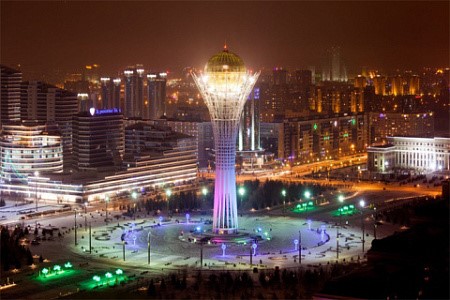Protected capital in Central Asia
The Ministry of Higher Education and Scientific Research of Kazikastan has presented a draft law on the promotion of restricted funds, an instrument used worldwide to promote the activities of educational and cultural institutions but still little used in Central Asia. The intention is to promote the growth of ‘social charity’ at all levels.
Astana (AsiaNews) - Protected capital funds, in English Endowment Financial, are the best guarantee for the development of higher education and science in any country or region of the world, one need only recall the Nobel Prize funds.
Public education systems in Central Asia also refer to them to some extent. Protected capital has been crucial for these purposes since medieval times, recall for instance the donation of Lady Margaret Beaufort, mother of England's King Henry VII, which enabled the establishment of a theology chair at Oxford, the origin of the glory of the world's most prestigious university.
Even in antiquity, similar practices were used, as when the philosopher Plato bequeathed all his possessions to the professors of the academy he founded, until the Roman emperor Marcus Aurelius decided to guarantee the continuity of philosophical studies in Athens with special capital.
All countries outside Europe have enjoyed these funds in modern times, during and after colonial eras, but in Central Asia there are rather faint traces of this fundamental instrument. In Tajikistan and Turkmenistan there is no trace of endowment, although since 2005 there has been a ‘Central Asian Eurasia Foundation’ (Efca), set up to ‘increase civic activism, develop private entrepreneurship, education and public administration’, with offices in Almaty, Biškek, Oš and Dušanbe.
In Kyrgyzstan, the first capital-protected fund appeared in 2023, based on the state technical university ‘Razzakov’.
In Uzbekistan, there has been talk of the need for this type of initiative since 2018, but the first facility was opened in 2021, at the Tashkent State University of Law; that year also saw the birth of the first private university in the Uzbek capital, the New Uzbekistan University (NewUU), at the initiative of President Šavkat Mirziyoyev, following the example of similar activities in Kazakhstan, such as the Nazarbaev University (NU), although the funding of the Uzbek institute is rather haphazard, unlike the Kazakh one.
Kazakhstan is actually the Central Asian country that has made the most use of charitable funds for education, and there are currently around 20 of them supporting 116 institutes throughout the country, according to calculations by the agency Ranking.kz.
Analysts highlight the successes of some of these organisations, such as the NU itself, the ‘Nazarbaev Intellectual School’ (NIS), the Republican Physical-Mathematical School Rfms, and the medicalendowment ‘Heart Centre’, a national cardio-surgical scientific centre.
The NU and the NIS enjoy a capital of more than a billion dollars, the others are at a much more modest financial level, although the Rfms can boast of having trained a considerable number of top specialists.
In an attempt to provide these facilities with more guarantees, the Astana Ministry of Higher Education and Scientific Research has submitted a draft law ‘On Protected Capital Funds’ to the Mažilis, the national parliament, which is expected to be voted on within the year.
The hope is to create an atmosphere that will entice the country's wealthiest and most responsible citizens to contribute to such initiatives, perhaps to finance the institutes where they themselves studied, or where their children and grandchildren are now. In fact, one of the principles ofendowment is the gratitude of graduates towards their Alma Mater, as is the tradition at Oxford and Harvard themselves, by those whose studies have enabled them to achieve high levels and career success.
In Central Asia, this social and educational glory is still a distant horizon, but in Kazakhstan they are confident of approaching it quickly by preparing various measures that reward the activities of patrons, not only of the ruling castes, but of all social spheres.
As experts in the field say, the growth of ‘social charity’ does not depend on the will of the rich and powerful, but on the demand and energy of the entire society, the middle classes and those who wish to live a qualitatively more interesting and productive life.







.png)










